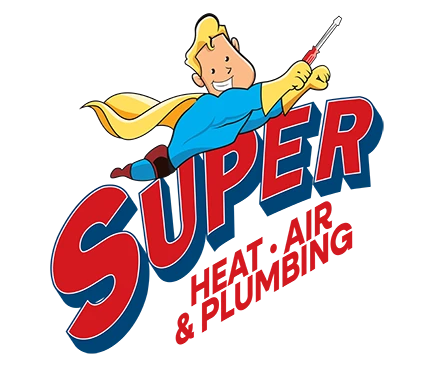Did you know that in many homes indoor air quality is often two to five times worse than outdoor air quality? Indoor air pollution comes from numerous sources including allergens circulated through your HVAC system to off-gassing of fabrics and plastics in the home.
Here are some ways that indoor air quality can affect your baby in your Tampa Bay home and what to do about it!
Measuring Indoor Air Quality
Indoor air quality is measured by the number of harmful particles in the air that we breathe. The Air Quality Index (AQI) gives a range of acceptable and unacceptable air quality.
A range of 1-50 micrograms per cubic meter is considered to be a healthy range for most people, while 101-150 is considered unhealthy for sensitive groups like young children, the elderly, infants, and those with pre-existing medical conditions.
What Factors Affect IAQ?
There are many things that can affect the indoor air quality (IAQ) in your home including:
Tobacco products
Paint fumes
Cleaning chemicals
Carbon dioxide
Asbestos
New carpet or flooring
Excess moisture
Dust particles
Mold spores
Airborne viruses
Animal dander
Perfumes
Hairsprays
Cooking
Candle smoke
Pollen and allergens from outside
Keep Reading > How Indoor Air Quality Affects Seasonal Allergies
Infant Health Problems Associated with Air Quality
Babies and small children are at more risk of health problems associated with poor air quality in the home. This has to do with the size of the baby including the ratio of the lung size to their body size, and the rate of their respiration.
Adults generally take 15 breaths a minute while babies take about forty breaths per minute when they are awake.
Bottom line, infants and small children are more likely to experience health problems associated with poor air quality because their brain, lungs, and immune system is still developing.
Short-Term Effects
The effects of poor IAQ can differ from person to person. Young children or infants may experience immediate irritation to the eyes, nose, and throat. they may also exhibit signs of dizziness, fatigue, and headaches.
Luckily, short-term symptoms often subside quickly if the infant is removed from the polluted environment.
Long-Term Effects
If exposed to poor IAQ for a long period, it is likely that an infant could develop irreversible respiratory issues like asthma, heart disease, and even cancer.
Asthma is one of the most common chronic diseases that children get. Further, it has been found that chronic inflammation caused by indoor air pollution reduces immune system functions, so it is harder for your infant to fight off germs.
Improving Air Quality in Your Home
So, what can you do to improve your home’s air quality?
Cut potential sources of poor indoor air quality at the source
Improve ventilation
Clean and vacuum regularly
Open the windows to exchange air periodically
Have your air ducts cleaned ad use air purifiers and dehumidifiers in your home
P.S. Don’t forget to change your HVAC air filter every 30-60 days!
Learn More> Is Air Quality Worse in the Summer?
Breathe Easier with Super Heat, Air, and Plumbing
At Super Heat, Air, and Plumbing, your family’s health is our top priority. We can find solutions to your indoor air quality issues and provide you with the necessary tools to combat them. From air duct cleaning and HVAC maintenance to HVAC filters and dehumidifiers, you’ll be amazed at how much better you feel, sleep, and breathe inside your home [hls_phone_number]!



